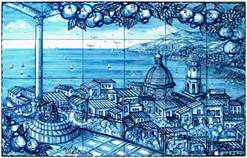Speaker
Dr
Changhyun Roh
(Korea Atomic Energy Research Institute)
Description
The microbial reduction of metals has attracted recent interest as these transformations can play crucial roles in the cycling of both inorganic and organic species in a range of environments and, if harnessed, may offer the basis for a wide range of innovative biotechnological processes. Microorganisms can affect the stability and mobility of the actinides U, Pu, Cm, Am, Np, and the fission products Tc, I, Cs, Sr, released from nuclear fuel reprocessing plants. Under appropriate conditions, microorganisms can alter the chemical speciation, solubility and sorption properties and thus could increase or decrease the concentrations of radionuclides in solution and the bioavailability. Dissolution or immobilization of radionuclides is brought about by direct enzymatic action or indirect non-enzymatic action of microorganisms. Although the physical, chemical, and geochemical processes affecting dissolution, precipitation, and mobilization of radionuclides have been investigated, we have only limited information on the effects of microbial processes. The mechanisms of microbial transformations of the major and minor actinides and the fission products under aerobic and anaerobic conditions in the presence of electron donors and acceptors will be reviewed.
Author
Dr
Changhyun Roh
(Korea Atomic Energy Research Institute)
Co-author
Prof.
Jonathan R Lloyd
(University of Manchester)

